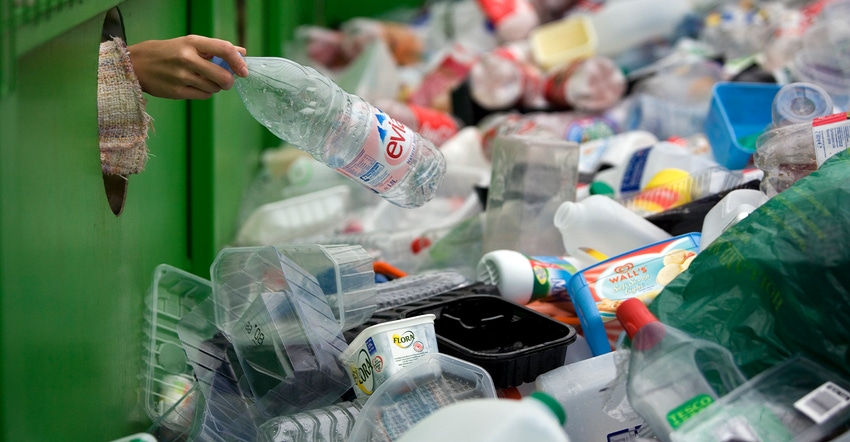Could chemical recycling of plastics be more cost-effective and environmentally friendly than mechanical recycling? That is the question at the heart of groundbreaking new research funded by the Environmental Research & Education Foundation (EREF).
March 31, 2022

Could chemical recycling of plastics be more cost-effective and environmentally friendly than mechanical recycling? That is the question at the heart of groundbreaking new research funded by the Environmental Research & Education Foundation (EREF).
A team of scientific researchers at North Carolina State University (NCSU) is studying the effects of supplementing and/or possibly replacing current recycling practices, which entail crushing plastic and re-melting it into granules, with alternative chemical recycling technologies which use chemical reactions to break down used plastics at the molecular level for potential reprocessing into new chemicals and/or plastic products.
With sustainability efforts driving culture and industry, both nationally and internationally, the results of this study have the potential to equip legislators and business leaders with unbiased data to guide decision-making.
The global annual demand for plastics is 400 million metric tons, however, only 8.7% of plastics are recovered in the United States. Furthermore, the supply of reprocessed plastics only meets 6% of the demand for plastic products. Therefore, improving plastics recycling is critical to building a more circular economy.
The researchers at NCSU conducting this study posit that chemical recycling has the potential to utilize a wider variety of plastics, which may be more effective and environmentally sustainable alternative and/or supplement to conventional mechanical recycling.
Chemical recycling consists of three techniques: conversion, decomposition, and purification.
* Conversion: polymers in mixed or sorted plastics are converted into smaller molecules. This can be done using pyrolysis (heating plastic waste into high temperatures (300-900°C) in the absence of oxygen) or gasification (heating plastic waste to high temperatures (500- 1300°C) in a low-oxygen environment to convert plastic waste into synthesis gas).
* Decomposition: polymers in sorted plastics are broken down into monomers with heat or chemicals. Chemical decomposition also uses solvents to break the polymers into monomers.
* Purification: solvents are used to separate polymers from additives or contaminants.
Chemical recycling can create new polymers or other high-value chemicals that can be used for other processes. Proponents of chemical recycling suggest it has potential to be cost-effective and environmentally competitive with the mechanical method, while also helping substantially improve the circularity of plastics. The biggest potential benefit would be the ability to recycle plastics that can’t be or aren’t currently being recycled. The NCSU team conducting this study intends to use a lifecycle assessment (LCA) model (called SWOLF) to evaluate and estimate the economic and environmental impacts of chemical recycling through various stages of collection and treatment.
If chemical recycling is to be widely implemented, the NCSU team explains we must consider the environmental and human health impact it might impose, such as potentially higher emissions from energy plants. This study may be a question of trade-offs: do the benefits outweigh potential costs? The outcomes of this modeling will enable researchers to provide unbiased data to government entities and business leaders to make sound recycling decisions. The research has an estimated completion date of April 2023.
About the Author(s)
You May Also Like


